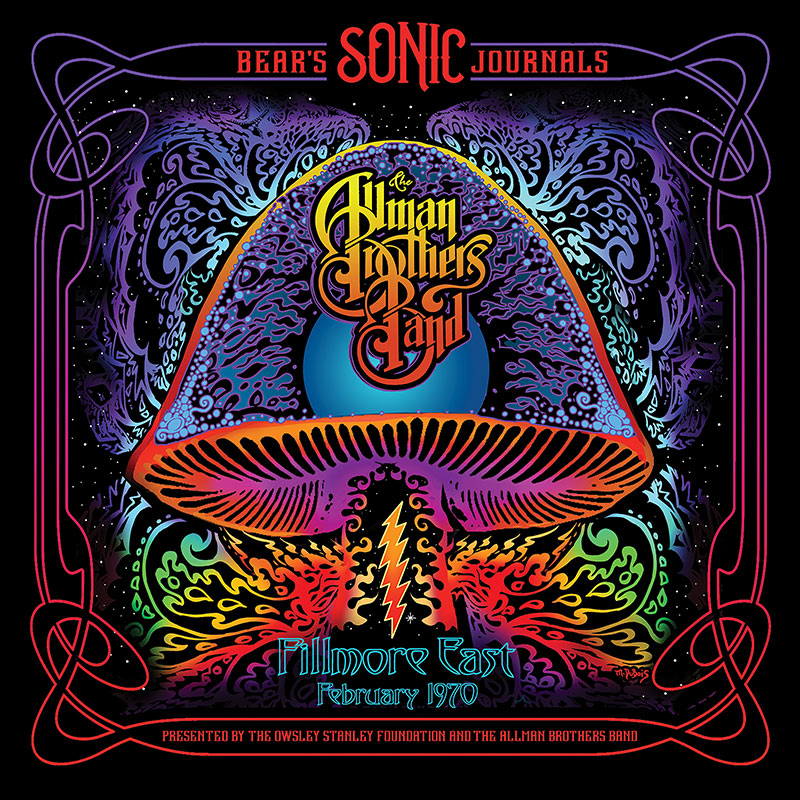Artist: The Allman Brothers Band
Album: Fillmore East February 1970
Label: Owsley Stanley Foundation
Release Date: 08.10.2018

It’s still strange to remember just what a short time the Allman Brothers Band existed with both of its namesakes; it was less than three years before older brother Duane died, far too young in a highway accident. Brief as it was, that first phase was a magical time when the group was forging blues, rock and roll, country, jazz-based improvisation and their own lightning-in-a-bottle chemistry into a sound that’s been opening ears and minds ever since.
So just about any material with Duane’s exceptional guitar work is to be treasured, and Fillmore East February 1970 certainly doesn’t disappoint. This isn’t to be confused with the monumental At Fillmore East—the band would still spend another year ramping up before reaching that explosive peak in ‘71. This came from an early three-night stint at the venue with Love and the Grateful Dead, whose sound wizard Owsley Stanley habitually compiled his own library of live tapes as he worked. We can all be grateful he also captured most of the ABB’s middle-bill slots in the process. This disc builds one solid set’s worth of material from across all three shows.
These are performances combusting with gleeful ambition and abandon. It’s a prime exhibit for why the ABB was earning such a stellar reputation, sowing the seeds of greatness to come even while still finding their way. That’s probably why we have a high proportion of old blues covers here, including the soon-to-be-dropped “Hoochie Coochie Man” (featuring a rare down-and-dirty lead vocal from bassist Berry Oakley) and a wailing “Outskirts of Town.”
Much as they obviously loved those tunes, it’s on their own catalogue that the nascent band shines most. This run includes the earliest known recordings of “In Memory of Elizabeth Reed,” and Duane and Dickey Betts’ telepathic guitars on their new soul-jazz jam (it’s the third night’s assuredly slinky version here) make clear what a leap in sophistication the members were making. Gregg’s “Whipping Post” roars with some not-quite-there hints of the workhorse it would become, while a soaring “Mountain Jam” has the sextet grooving through its epic twists and turns with unbridled joy.
This Fillmore compilation had a limited CD run in the late ‘90s, but now these tapes have been newly mixed (“built from the ground up,” as Stanley’s son puts it) and the result sounds like it was just made yesterday. It’s always a special treat to hear this early rough-and-tumble band excitedly coming into their own. Even after all these years, there’s never been anything else quite like it.
—Geno Thackara







Be the first to comment!